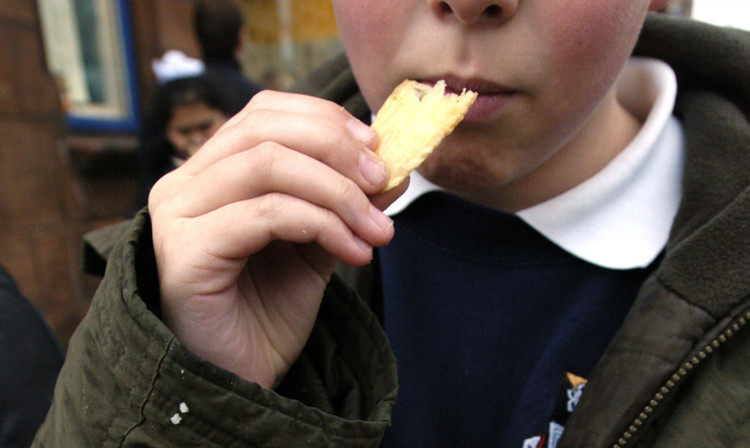
“kids mimic adults in all things and today’s sedentary, inactive adults have become the worst role models for children.”
So it’s official. Scottish children are among the least active in the world.
In a survey of 15 countries, our bairns are bottom in physical activity and top in time spent glued to computer screens. We scored a big fat F, while England scrapped a D-plus. Jings.
It’s bad news at any time downright embarrassing as we prepare to host the Commonwealth Games.
There’s been breast-beating and parent-blaming aplenty. Why this near addiction to computer games? Why don’t parents order the wee souls outside? After all we scored a B for park facilities it’s not as if there aren’t places to go and “recreate”.
But is that really true? I don’t ever remember playing in a park when I was wee. It was the garden when we lived in Belfast and the street in Glasgow.
Parks were few, far between and a bit sedate with grannies on park benches, flowers in borders and jannies in gatehouses ready to spring into action at the slightest sound of a kicked ball. The same was true in schools with playgrounds.
It’s no coincidence great Scottish footie players came from a generation that pre-dated “No Ball Games” signs.
But nowadays community schools have facilities designed for after school and weekend use why isn’t that reversing our unhealthy, sedentary indoor lives?
Well many parents are loth to let children play out of earshot. Some parks and even school facilities are the preserve of bullies and violent teenagers.
And busy roads with lines of parked cars are hardly ideal recreational spaces.
Another problem is the exorbitant cost of school trips and clubs sometimes because of daft PFI contracts which specify whopping extra charges for using facilities out of hours.
And sport centres, conveniently handed over to “arms-length companies” by councils, are often no cheaper. If we really meant business on childhood obesity and fitness we’d make sport centres free to use for under-16s and build more to meet the real demand.
Schools do use swimming pools recent figures show it’s Scotland’s favourite sport. Ironically, swimming is Norway’s least popular sport but their participation level of 20% is higher than Scotland’s 18% where watery exercise is supposedly Top of the Pops.
So what’s going wrong? Well kids mimic adults in all things and today’s sedentary, inactive adults have become the worst role models for children.
I don’t blame parents though I blame governments. Scottish adults work the longest hours of any parents in Europe with the least access to good, affordable childcare. In Norway, children are active and outdoors with supervision from the age of one till six at kindergarten before they even start school.
State subsidises mean high quality nursery care costs £200 a month for a full time place wow.
Most Norwegian children spend the entire day outside even in snow and temperatures of minus 18 degrees wearing waterproof, insulated outfits and learning to share, work in teams, talk, cooperate and lose all fear of the Great Outdoors by being in it.
Public policy means there’s little poverty in Norway and few no-go zones patrolled by angry, dispossessed kids.
The shortest working week in Europe means winter evenings cross country skiing and summer weekends at modest, wooden huts in the mountains.
In Scotland by contrast but ’n’ bens are scarce, poor folk camp by the wayside (if they’re allowed) and land is hard to rent, access or own.
Scots have been short-changed for decades. Our unsporting, sedentary children are only the proof. Getting unstuck won’t be child’s play but it will be worth it?

Enjoy the convenience of having The Sunday Post delivered as a digital ePaper straight to your smartphone, tablet or computer.
Subscribe for only £5.49 a month and enjoy all the benefits of the printed paper as a digital replica.
Subscribe